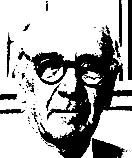We had finished work and were driving along the waterfront at Bondi, hot, dry, dusty. I was watching out to the right for the nearest pub. Tom had already caught sight of one and was looking for a place to park. Bill in the back of the car, sandwiched between the theodolite legs and a chaff-bag full of pegs, was as thirsty as either of us; but his mind was not on the pub, it was with his eyes on the sea. What he said was:
Prettiest thing I know is a wave breaking.
Same with a fire; I can watch a fire till it burns me.
Bill will probably never know that he is a poet, as every man is, nor that, as every man does when the poet in him is moved, he spoke in verse.
Few of us have Bill's gift, which makes him such good company, of co-ordinating moments of heightened realisation or perception with instantaneous aptness of words; and consequently few of us ever speak such good verse as those two lines. Technicians and Leaving Certificate candidates will observe how the second line, closely matching and balancing the first in some respects, and subtly contrasting with it in others, is its perfect complement. They will rightly ignore a brief hiatus in syntax and will appreciate the slow tempo with the change of image, the economy of expression, the unforced use of inversion, and the quiet but telling emphasis of the conclusion.
Poetry is a natural language for anything that requires to be conveyed from mind to mind a little more movingly, a little more directly, a little more nakedly than by the ordinary medium of speech. It is that Cinderella which dances on ahead of our thoughts on feet which that part of us which is princely may, with luck, fit a glass slipper to, but which pedantry is not likely to squeeze into stock size: "These are the latest in iambics, madam."
By a complicated and very scholarly process grave counsellors, trudging laboriously after the prince and examining the churned mud at the cross-roads have become conscious of some of the prints left by the little bare feet he follows; so that we hear much about "sprung rhythm", "prose rhythms", "speech-inflections", as if such verse as Bill's were an invention of this century; as if the theorists, for all their learned airs, are unaware Beowulf ever dipped whiskers in mead.
Among both the learned and the not so learned it is accepted that poetry can be the language of the emotions; what does not gain such ready acceptance is that poetry is a living language whose syllables fall naturally into verse. And yet both these effects may be illustrated simultaneously by the easy experiment of dropping a weight on your toe. Any really prolonged and heartfelt profanity may lack originality but its imagery is elaborately fantastic; and it invariably scans.
Due to some misunderstanding of these very simple principles verse is considered difficult. Some modern poets have surrendered to this belief by writing not free-verse, which is legitimate, but outright prose; though as an act of appeasement to conventions which they affect to despise they saw it unceremoniously into lengths; and some have contributed to the belief by being as unintelligible as possible. It is an illogical belief nevertheless; for written verse is always far more carefully constructed than prose; the ideas are more carefully set out; the words are more carefully selected; the very spacing of the lines relieves the eye and assists the mind in following the sense.
Verse was once more widely used than it is now. Satires, essays, moral discourses, even scientific theses matters which have little in common with real poetry have been written in verse for the sake of its greater clarity and simplicity. But now even blank-verse plays, Shakespeare's included, are considered unnatural; as if even were that true there were no room in the theatre for anything but the rigidly realistic.
Admittedly there are prose passages in Hamlet more effectively constructed and emotionally stronger than the regular verse - an astounding fact when it is considered how admirable the verse is; but this anomaly was recently removed by an astute critic who showed that Hamlet's prose may be rearranged as verse of a type slightly more "advanced" than is normal with Shakespeare.
As a final example of poetry as natural language, I recall a quatrain, the last line of which was a real remark, uttered with such sincere thankfulness for small and large blessings that with all its superficial incongruity it fell into strict metre; whereupon, as might have been expected, the other lines wrote themselves spontaneously:
Our debts become deeper; our troubles grow thicker;
We're broke to the wide; we've no diamonds or cars;
But we still can buy food and occasionally liquor,
And how good that our lavatory faces the stars!
There is in everyday life much that is difficult, much that is a weariness of the spirit, much that is sordid. But there is still the wave breaking, and there are still the stars. How good, how good indeed!
RD FitzGerald
